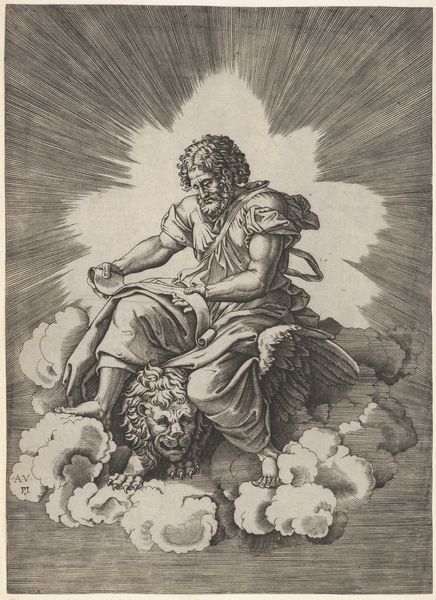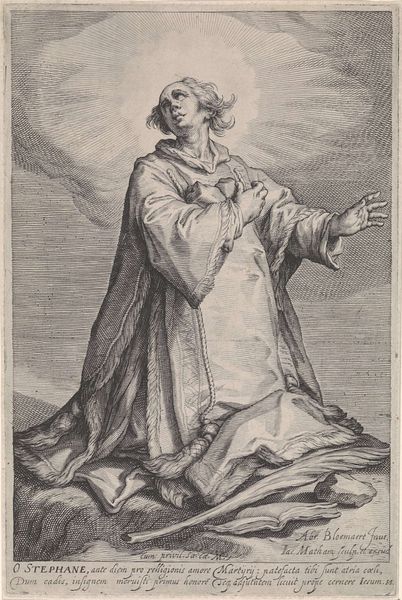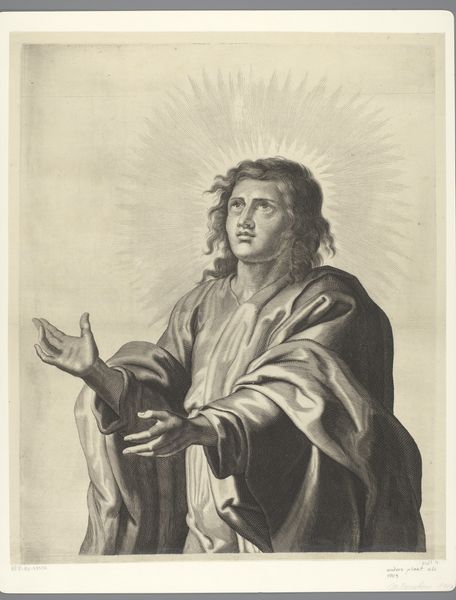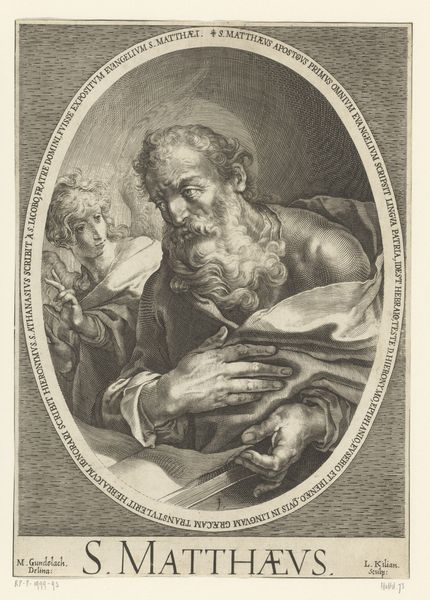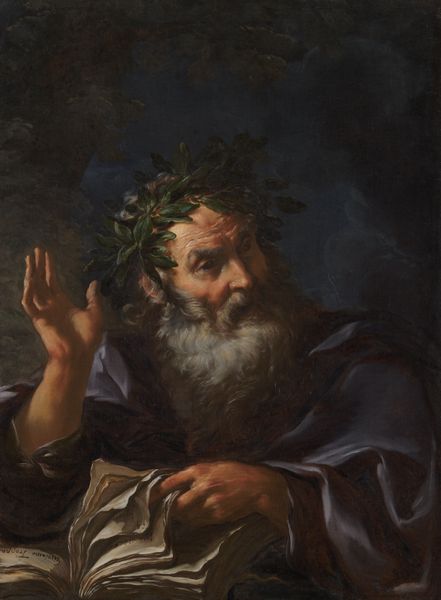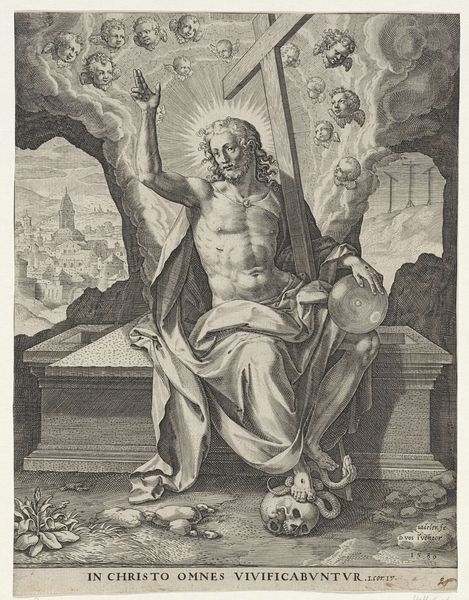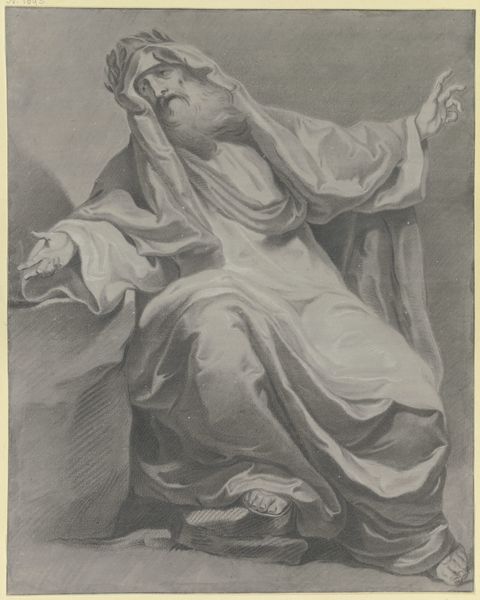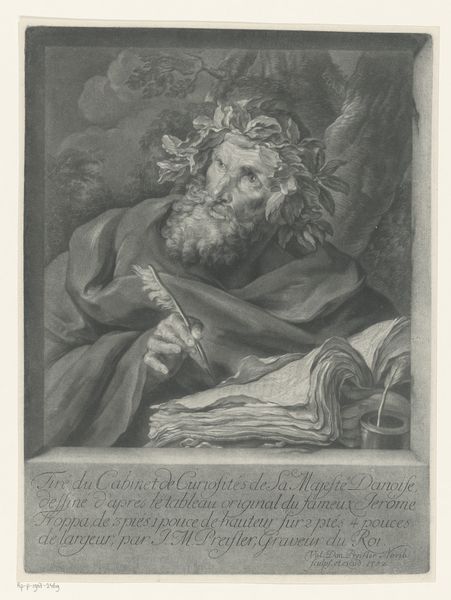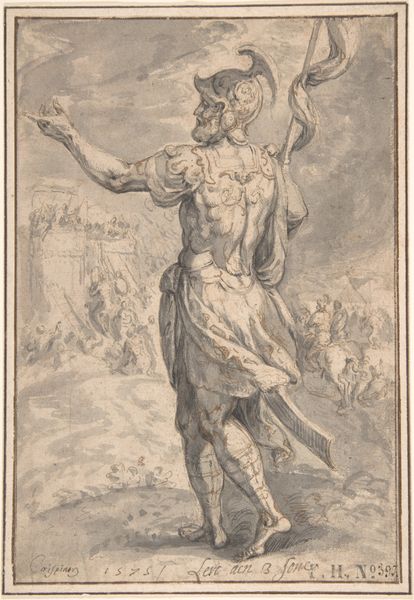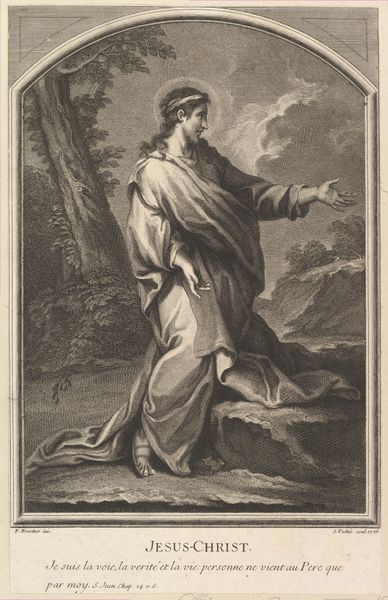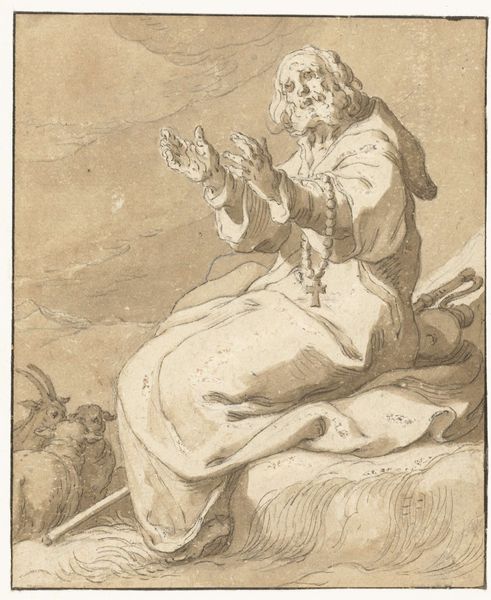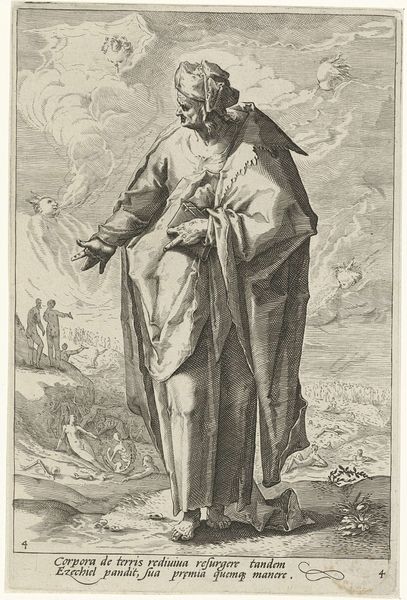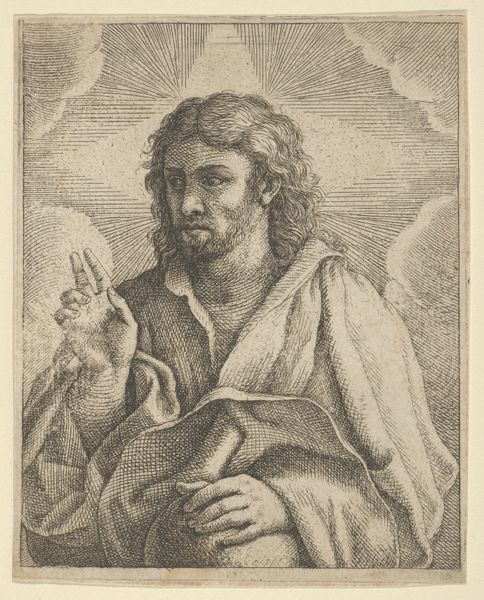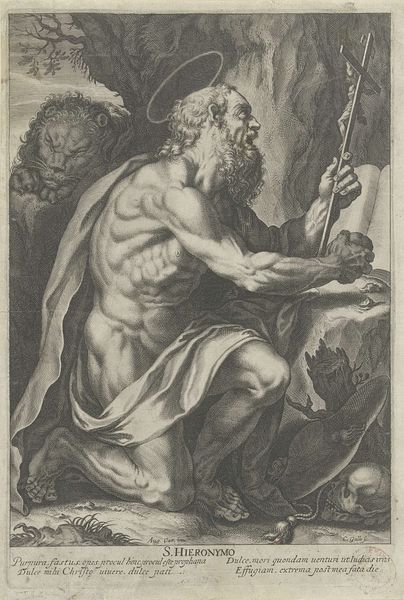
engraving
#
portrait
#
baroque
#
charcoal drawing
#
portrait drawing
#
history-painting
#
engraving
Dimensions: height 298 mm, width 259 mm
Copyright: Rijks Museum: Open Domain
Curator: Good day! We're standing before "Schrijvende evangelist" created between 1750 and 1752 by Valentin Daniel Preissler. It is an engraving. Editor: He looks so deep in thought, almost startled! The shading is beautiful, especially the light catching the edge of those pages. And is that a laurel wreath? Curator: It certainly gives a classical air, doesn’t it? For me, the charm lies in the engraving technique. Consider the laborious, repetitive action required to carve the fine details into the metal plate. Editor: Right, turning a devotional act into a manufactured object for wider circulation. There’s an inherent tension there, between the personal devotion and the almost industrial printing process. You know, the consumption aspect changes the dynamic. Curator: Indeed! But beyond the mechanics, Preissler also evokes a sense of profound contemplation. He is lit with an inner light and in the middle of an inspiration! Almost as if he heard an echo of divine words. It really grabs me. Editor: The way the robes pool around him, too. They suggest a tangible affluence – good quality material and crafted to last! Notice how even the wisps of his beard feel substantial, not just decorative. These textures feel carefully considered, showing us the luxury in even pious devotion. Curator: True, nothing is an accident! Preissler’s evangelist lives in a space where ideas become a tangible object with meaning and presence. A reminder that stories once written can continue living! Editor: Exactly. It makes me think of how reliant early engravings were on highly skilled craftsmanship. Something we easily overlook today in our digital age. Curator: This engraving asks us to look beyond the image and see the dance of materiality, labor, and finally, artistry. Editor: Absolutely! It also gently points out the fascinating push and pull between the creative vision, its means of production and eventual societal impact. Food for thought indeed.
Comments
No comments
Be the first to comment and join the conversation on the ultimate creative platform.
